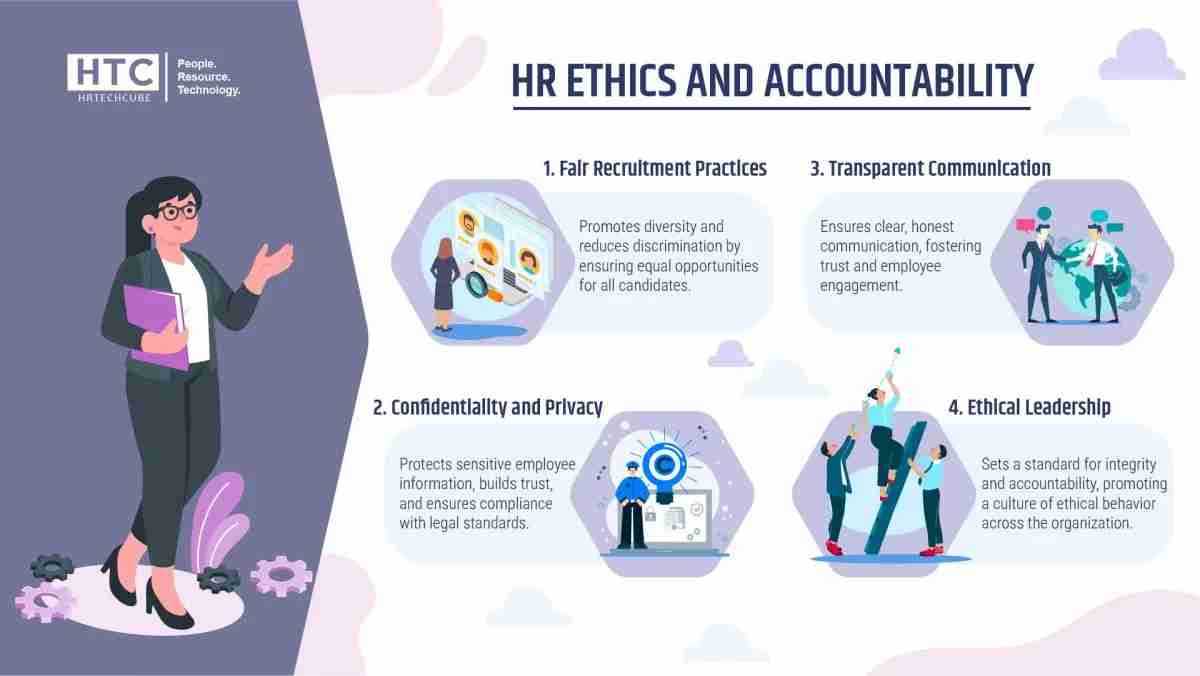1. HR Ethics
a. Definition and Importance:
HR ethics involve the application of moral principles to HR practices. Ethical HR management is essential for building a culture of trust, respect, and integrity in the workplace.
b. Key Ethical Principles in HR:
Confidentiality: Protecting the privacy of employees’ personal information.
Fairness and Equity: Ensuring equal treatment and opportunities for all employees.
Transparency: Open and honest communication about policies, procedures, and decisions.
Respect for Individuals: Valuing each employee’s dignity and contributions.
Compliance with Laws and Regulations: Adhering to all relevant labor laws and ethical guidelines.
c. Ethical Dilemmas:
HR professionals often face ethical dilemmas such as balancing the interests of the organization with those of employees, managing conflicts of interest, and handling sensitive information.
2. Accountability in HR
a. Definition and Importance:
Accountability in HR means taking responsibility for decisions and actions, ensuring they align with ethical standards and organizational policies. It involves being answerable to stakeholders, including employees, management, and regulatory bodies.
